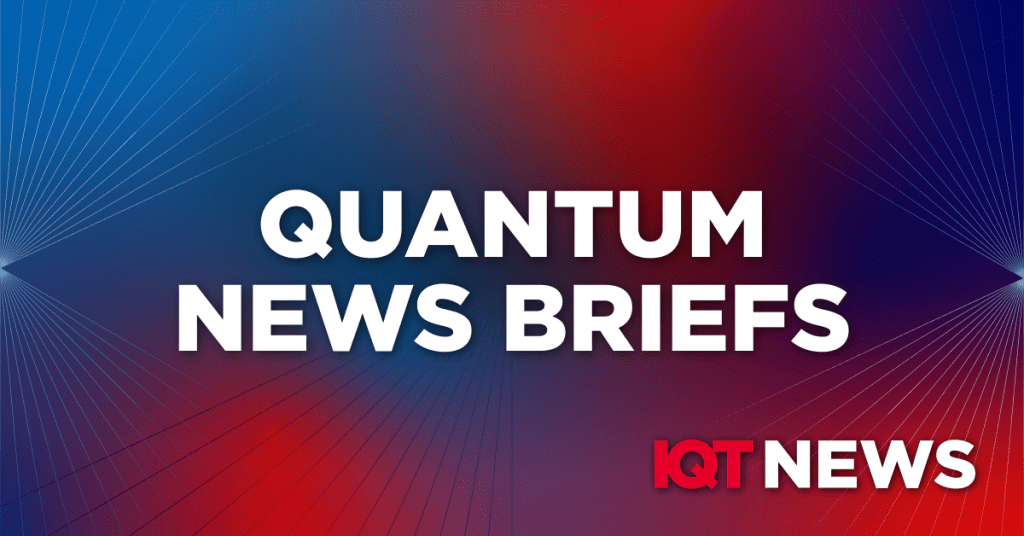Pasqal and Université de Sherbrooke Partner to Advance Quantum Computing Research and Education
Pasqal, a global leader in neutral-atom quantum computing, and Université de Sherbrooke (UdeS) have signed an agreement to collaborate on advancing quantum computing education and research according to September 19 news release. This partnership aims to develop educational materials, train a quantum-ready workforce and enable groundbreaking research using Pasqal’s quantum technologies.
One of the main objectives of this collaboration is to enhance educational initiatives by co-developing and introducing practical, hands-on materials that will prepare students for careers in the burgeoning field of quantum computing. This effort aims to equip students with the necessary skills to utilize and further develop quantum technologies. Additionally, the partnership will facilitate joint research projects, providing UdeS researchers and students the opportunity to develop their own software applications using Pasqal’s advanced hardware and software.
Pasqal a Gold Sponsor at IQT Quantum + AI in NYC October 29-30
Furthermore, Pasqal will offer internship opportunities to UdeS students, giving them invaluable practical experience within a leading quantum computing company. This initiative will help bridge the gap between academic knowledge and industry applications, promoting a new generation of quantum computing professionals
HSBC & Quantinuum Test Quantum-Resistant Security for Digital Gold Assets
HSBC announced September 19 that it has successfully trialled the first application of quantum-secure technology for buying and selling tokenized physical gold. This achievement marks the latest step by HSBC in pioneering the protection of critical applications from potential future quantum computing attacks.
Last year, HSBC was the first global bank to offer tokenized physical gold to institutional investors using distributed ledger technology (DLT). This year saw another first, with the launch of HSBC Gold Token for retail investors in Hong Kong, allowing them to acquire fractional ownership of physical gold. Both launches use the technology of the HSBC Orion digital assets platform.
HSBC also tested the interoperability of its gold tokens using post-quantum cryptography (PQC) to move digital assets safely across distributed ledgers via secure networks, addressing clients’ evolving needs and regulations. This included the capability to convert HSBC’s gold tokens into ERC-20 fungible tokens, thereby enhancing distribution and interoperability with other DLTs and digital wallets.
As part of the quantum pilot, Quantinuum, the world’s largest integrated quantum computing company, used PQC algorithms and its Quantum Origin quantum randomness technology to demonstrate holistic protection of digital assets such as HSBC gold tokens from a quantum computing attack, and prevent “store now, decrypt-later” (SNDL) cyber incidents.
Cryptomathic and PQShield Form Strategic Alliance to Offer PQC Solutions for Code Signing & Data Protection in Compliance with Latest NIST and CNSA Recommendations
With the CNSA 2.0 requirements and also with the recent release of FIPS 203, FIPS 204 and FIPS 205, which specify algorithms derived from CRYSTALS-Dilithium, CRYSTALS-KYBER and SPHINCS+, the migration to Post Quantum Cryptography (PQC) is now a reality for a many organizations. Organizations are faced with challenges when navigating the transition to PQC, as it impacts a wide range of use cases from signing of device firmware and secure boot, to network and application security, where meticulous management of the involved cryptographic keys and their life cycles through the transition is more important than ever. As organizations consider their options and estimate development efforts, this represents a unique opportunity to strengthen their cybersecurity.
Quantum Machines Integrates Qruise’s ML Software for Enhanced Quantum Control
.
Qruise, a pioneer in machine learning software for physics-centric R&D, and Quantum Machines (QM), a leading provider of processor-based quantum controllers, have announced a strategic partnership aimed at accelerating the development of quantum technology. As part of this collaboration, Quantum Machines will offer Qruise’s advanced software as an add-on to its own products, following the success of their recent joint research that significantly enhances the fidelities of superconducting quantum gates.
The partnership leverages the strengths of both companies to provide quantum researchers and developers with a comprehensive solution for high-precision control, calibration, and characterization of quantum devices.
Qruise’s cutting-edge software, optimized for peak performance with Quantum Machines’ hardware, performs rapid, in-depth characterization of quantum devices and generates highly accurate Digital Twins of quantum systems. This integration allows users to pinpoint and address sources of noise and distortion that limit device performance.
